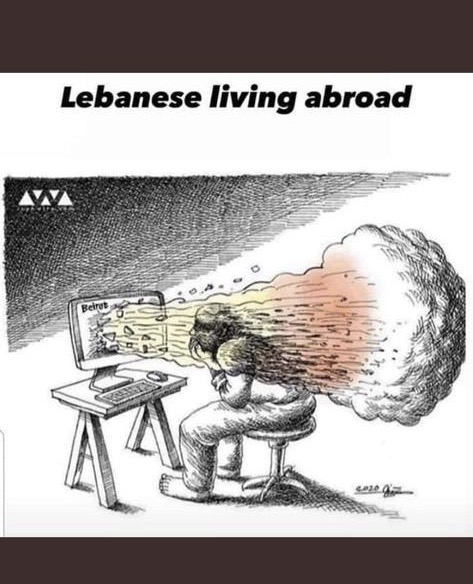One month after the devastating explosion in Beirut, the terrible news keeps coming: people still trapped under the rubble (one thought to be alive!), others missing, more than 150 dead and 6000 injured, hundreds of lost pets and countless restaurants, cafés, shops and other local businesses completely destroyed.
Since I left Lebanon four years ago, I never felt as sad and angry as I did in the past month. It’s been a roller coaster of emotions. I clung to Facebook, Twitter, Lebanese TV channels (which I never used to watch even when I was in Lebanon) and international newspapers in an attempt to understand how this disaster happened and, more so, not to miss a single story, since four August. Fear for my friends and family (none of whom are ‘okay’, but at least they’re safe and alive) and sadness about the fate of my people turned into anger at this disgusting, incompetent and rotten political class as well as at those who are loyal to them; then into frustration and helplessness for not being physically present in Beirut.
Besides the tragic and heartbreaking stories I saw — about mothers and fathers losing children, spouses and siblings being buried, classmates, friends, colleagues, passers-by or people at home maimed while going about their day, business owners losing their entire life’s investments, houses that are no longer habitable (more than 300,000 people left homeless), cars completely destroyed — it was and is painful to see friends and acquaintances who have dedicated their lives to making their passion a reality, be it through museum exhibitions or theatre or art or music or festivals or poetry or anything else that gives meaning to life, lose it all. They offered it to everyone else in the society to celebrate and enjoy, and now it is gone.
A few days after the explosion came the feeling of guilt. For living in a functioning country, for having good roads, electricity, water, health care, education, freedom and accountability. It is almost perfect. There is barely anything to complain about. I felt privileged. Why me? After that, anger surfaced again, this time at those around me moving on with their lives like nothing happened. I felt like yelling: Beirut is destroyed! Don’t you see? Nothing meant anything anymore. On a Saturday morning, I had a long run for Beirut, wearing a T-shirt from the 2015 Beirut marathon. I wanted people in the Vondelpark to see the word Beirut, to think about it.
I spread the word about which organizations to donate to, individual Lebanese who needed help rebuilding their shops and restaurants. I talked a lot with my family in Lebanon, trying to understand the present and the future. Where did the ammonium nitrate come from? How long has it been there (since 2013)? Who stores fireworks next to such an explosive material? Are we sure it was not an Israeli missile? Was Hezbollah storing weapons there? Will any politician or senior government official be held accountable? If so, when? What’s the scale of the destruction (more than you can imagine)? How does my street look like (you won’t recognize it)? Is the apartment I lived in damaged? Do you know if the two old ladies running the small shop in Mar Mikhail street were hurt (they’re alive)? How is the situation with corona after this catastrophe (hospitals are overwhelmed)? Are NGOs getting the aid money or the government (bunch of thieves)? What can I do to help from The Netherlands? Do you think I should come?
There was no more talk about hope and resilience, about Beirut the city that is full of life despite everything, yadda yadda yadda. Only misery across the country. Will this bring any change? I doubt it. But I can’t see how it can get any worse. So it must get better.

mention him / her in the comments).
